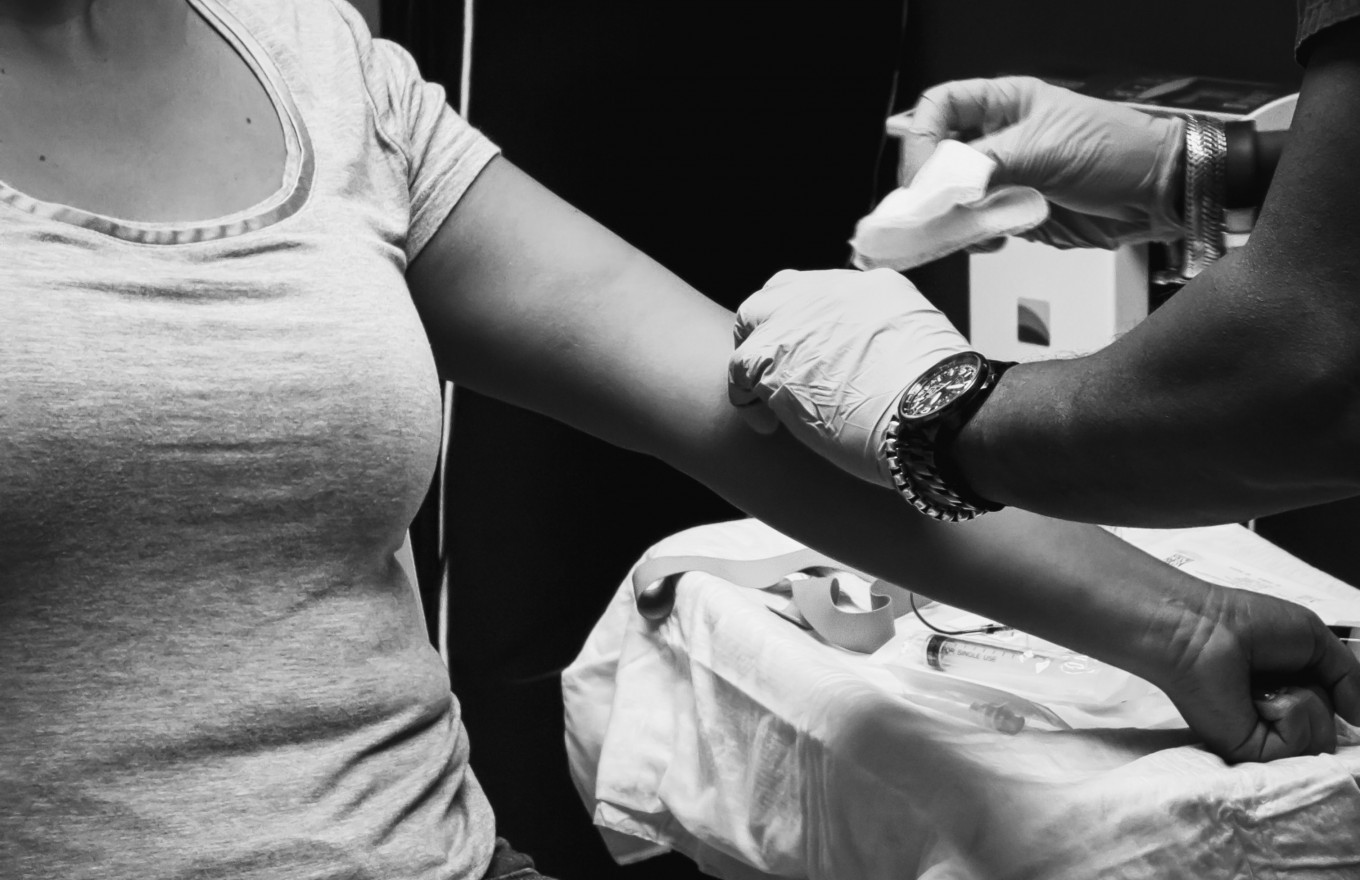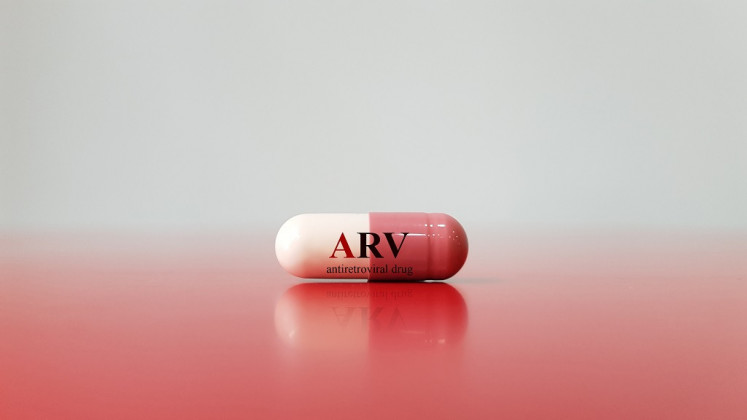Popular Reads
Top Results
Can't find what you're looking for?
View all search resultsPopular Reads
Top Results
Can't find what you're looking for?
View all search resultsHIV support groups stretched thin amid pandemic curbs
As the pandemic sweeps through the country at an alarming rate, mobility restrictions have exacerbated existing problems with HIV care.
Change text size
Gift Premium Articles
to Anyone
I
n the global fight against the human immunodeficiency virus (HIV), grassroots organizations play an important role in ensuring that people living with the condition get sound treatment and a chance at a normal life.
These kinds of support groups already face an uphill battle advocating for people with a virus that still carries a stigma in Indonesia.
But as the second wave of the COVID-19 pandemic sweeps through the country, the attendant mobility curbs have exacerbated existing problems of care and have exposed the limits of support groups in helping people with HIV.
A World Health Organization (WHO) report published on Thursday ahead of an AIDS conference in Germany has found that having HIV increases the chances of dying of a COVID-19 infection by 30 percent.
Many countries with high numbers of people living with HIV are facing a surge of coronavirus cases, fueled by the more transmissible Delta variant and global shortages of COVID-19 vaccines.
The government is considering extending mobility curbs to address the ongoing surge of infections, amid a tenfold rise in daily cases over the span of a few weeks.
But beyond the direct threat of the coronavirus for people living with HIV, support systems are beginning to buckle under the pressure of pandemic restrictions.
Read also: For Indonesians with HIV/AIDS, COVID-19 vaccination mixed bag
Lack of funding
HIV care organizations depend largely on private donors, said Daniel Marguari, director of the Spiritua Foundation. But more funding is needed to reach the national objective of eradicating HIV by 2030.
“The pandemic has really made it impossible to access testing, education and prevention resources. What we need is sustainable funding to make sure the pandemic doesn’t wipe out the progress we have made,” Daniel said during a webinar on Wednesday.
According to a Spiritua investment case document released on Friday, there is currently a US$55.2 million funding deficit for the nation’s HIV program for 2022 to 2023 and another $58.4 million deficit for 2024.
The foundation believes that some 72 percent of the funding gap for the 2022 to 2023 period is the result of a government “that it is not prepared or willing” to handle HIV, whether by reaching out to marginalized communities, overcoming barriers to accessing support services or strengthening community health systems.
Meanwhile, the state has allocated Rp 695.2 trillion ($47.9 billion) for its COVID-19 response and national economic recovery scheme, according to a 2020 government financial report shown to legislators.
For survival: People living with HIV/AIDS need to take ARV drugs every day to maintain and improve the quality of their lives and help prevent the spread of the infection to others. (Courtesy of Shutterstock/joel bubble ben)Burden on volunteers
HIV treatment generally requires setting up a support system that caters to patients’ needs, from detection to medication. Support groups usually employ volunteers to interact with HIV patients, bring them to antiretroviral therapy and monitor their adherence to treatment.
These groups also vary in capacity and focus. Some work exclusively on HIV testing, while others campaign for awareness of HIV/AIDS and other sexually transmitted infections (STIs). Only a few offer comprehensive treatment or work with healthcare facilities to offer people living with HIV care and peace of mind.
But pandemic restrictions have made the shortage of manpower more palpable.
“We face a tremendous shortage of human resources. Not enough people volunteer as activists, so the ones that are there are spread thin,” said Samsuri “Sammi” Lazuardy, a counselor at Friends of People Living with HIV.
This shortage is particularly acute among counselors like Sammi. Counselors make up less than half the people with HIV helped by the organization, even though they play a very important role in providing psychological support throughout the course of therapy.
“Many healthcare facilities have also reallocated their resources toward COVID-19, thus cutting short the length of consultations for HIV treatment,” he told The Jakarta Post on Wednesday.
Read also: Why HIV care services must continue during pandemic
Inefficiencies
Unlike other groups, Commuty ID, an Instagram-based HIV support network based in Bandung, West Java, has not seen many problems with manpower, funding or logistics. While mobility restrictions have made it harder for the network’s members to get medication, other activities involving people with HIV, such as testing, medicating and monitoring, are continuing to run well.
“[But] the pandemic has forced us to have strictly online meetings between our members and volunteers, which we have found to be ineffective,” said Nurul Huda, the founder of Commuty ID.
The organization has also noted significant cuts to HIV support services at the healthcare facilities they work with and has observed that many health officials still tend to ignore HIV cases despite their severity.
As of 2019, 640,000 people in Indonesia were known to be HIV-positive. Only 115,735 were undergoing antiretroviral treatment, and only 2,184 had been shown to have their viral loads suppressed.
Indonesia scores 34 out of 100 in access to HIV therapy, which means that just over a third of HIV patients get the necessary treatment, according to research by the Perkumpulan Prakarsa Center for Welfare Studies last year.
The score is far below the target set out by the United Nations AIDS organization – that 90 percent of PLHIV have access to antiretroviral drugs.
Indonesia intends to participate in the 95-95-95 UNAIDS acceleration program, which aims to have 95 percent of people with HIV know their status, remain in therapy and have their viral loads suppressed.











